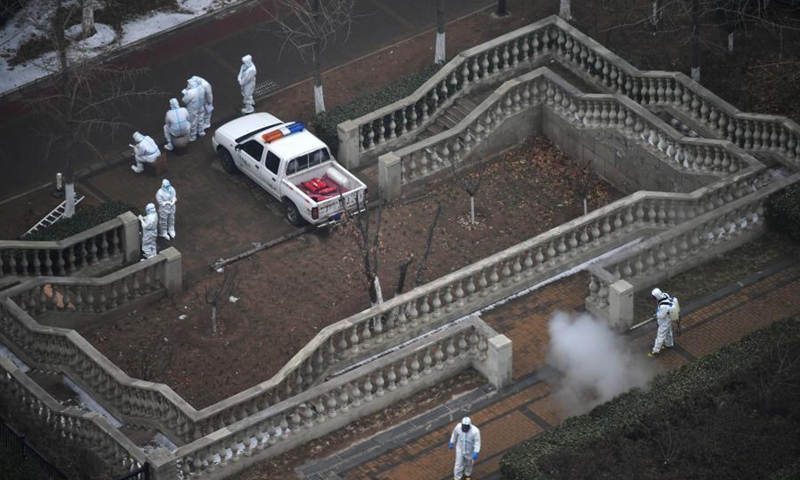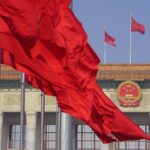Beijing will strengthen its entry restrictions during the Lunar New Year holiday break, requiring even people from low-risk areas to hold seven-day valid nucleic acid tests when coming to the capital, as the authorities said the epidemic prevention and control work in Daxing district is still in a critical phase.
The announcement was made by Xu Hejian, spokesperson for the Beijing government, at a press conference on Wednesday, noting that the measure will be effective from Thursday to March 15.
Incomers also need to undergo a 14-day health monitoring period after their arrival, with nucleic acid testing once every seven days.
Unlike the quarantine system, the health monitoring policy allows people to go out for normal work and social activities, but requires them to report their health status to the community committee and other local authorities, Xu said.
People from COVID-19 medium- and high-risk regions have to apply for a pass from the provincial-level anti-epidemic department and present a negative test certificate taken within three days to be allowed to enter Beijing, he said.
The government continues to urge people to refrain from attending group events and is promoting online entertainment activities such as art performances and virtual travel.
The three largest telecom operators in China – China Mobile, China Telecom and China Unicom – will also provide a free local data package of 20G to their users based in Beijing during the festival holiday.
Beijing announced on January 18 that it was implementing a quarantine system of “14+7+7” days for overseas arrivals. The Beijing Center for Disease Control and Prevention said on January 20 that that the coronavirus strain in the first two cases reported in Daxing was the variant B.1.1.7 that has been spreading in the UK.
Beijing reported four new confirmed cases on Wednesday, all from Daxing district, bringing the total number in the district to 28 since the fresh outbreak started on January 17.
The prevention and control of the COVID-19 cluster in Daxing is still in the critical phase and all locked-down areas will remain under a strict sealed-off management mode, said Xu.
All public places in the district will strictly limit traffic flow, he said. Daxing started its second round of mass nucleic acid testing on Tuesday and it is expected to be completed within two days.
Epidemic prevention staff conduct disinfection at the Ronghui residential compound in Daxing’s Tiangongyuan subdistrict, Beijing, capital of China, Jan. 25, 2021. The COVID-19 risk classification of the Ronghui residential compound, where several locally transmitted COVID-19 cases had been detected recently, was upgraded to high-risk on Jan. 20. (Xinhua/Sun Ruibo)




